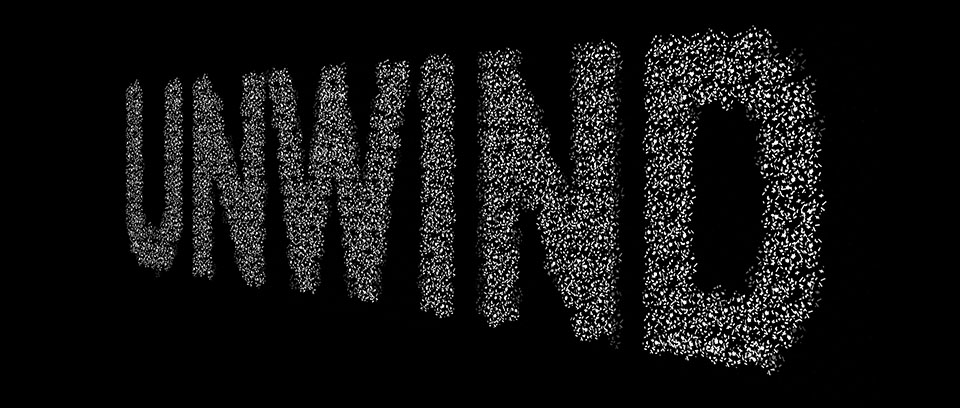It is 7 pm, the news anchor fills the silver screen, his eyes wide with shock as he reads news of a mother stabbing her three children to death and turning the knife to herself. As if not enough, the next item rolls in; a police officer kills his wife and two children in cold blood, followed by; a young man butchers his girlfriend, then a 12-year-old who hangs herself.
“These heinous acts and rampant suicide cases among other destructive means that make news today is a cry of distress; people are sick. Nobody in their right minds can do such things, these are symptoms of full-blown mental illness,” said Prof Atwoli Lukoye, Professor of Psychiatry at Moi University School of Medicine. He is also a member of the Mental Health Taskforce, which was formed by the Ministry of health following President Uhuru Kenyatta’s directive in 2019.
Mental health is one of the most vital yet the most neglected area of human health. Most people are ignorant of the magnitude of mental health issues, the role it plays and even what it means.
“Everyone needs good mental health status. However, when one speaks of mental illness, most people relate it to the psychological separation from reality. Mental health is the general well being of the mind. Any change in thinking, emotion and behaviour is termed as mental illness. It affects how we think, feel, and act. It also helps determine how we handle stress, relate to others, and make choices. Mental health is important at every stage of life, from childhood through adolescence to adulthood,” said Dr Joyce Nato. Dr Nato is a psychiatrist working with the World Health Organization, and also a member of the mental health task force.

According to research done by WHO in 2014, 450million people are living with mental illness globally, with Kenya being the 9th most depressed country in the world, and the 4th most depressed in Africa. In Kenya 1 in every 4 people is suffering from mental illness. 10 % of this population suffer from severe mental problems, while 25% have mild mental illnesses. The serious problems include schizophrenia, Post Traumatic Stress Disorder PTSD, bipolar, while mild ones range from anxiety, depression and stress.
“People are walking around with scars from various traumatic experiences, but they do not know where to go to seek help. Most of these people suffer in silence for fear of victimization and stigmatization. There are those people who have lost their jobs and social standing just because they visited a psychiatrist or a doctor, who said that they are mentally ill. Youths also have mental challenges that are often dismissed as adolescence stage,” said Prof. Atwoli.
The prof added that, While the mental problem is one of the biggest challenges to the youths, men are the most hit by depression among other forms of serious mental issues. This is because men in the African culture are strong and are not supposed to show weakness. They are expected to solve peoples’ problems; wife and children, parents and siblings in a family set up, with no mental support for them. Consequently, to handle the pressure that is so bottled up they resort to drugs (mostly alcohol) and other destructive ways because they cannot talk, lest they appear weak. Women have support systems, they meet and talk, or talk to friends and spouses and vent out.
“We have woken up to bizarre happenings from the disciplinary forces who are the custodians of the law and order. We have heard of cases where they have shot others and then themselves. First of all separation of these officers from their family members, the tough training and the job environment, take a toll with time. These people are traumatized, they see a lot in their line of duty, they lose their colleagues senselessly, they get hurt physically and emotionally. They are not robots so with no support system in place, they ask for transfers and even for allowances which they are denied.
Eventually, they snap, everyone has a breaking point. When they visit psychiatrists, they are dismissed on grounds of not being mentally fit to handle duties and are denied pensions. It is tough, a way must be found to help these men,” said Kakamega Deputy County Commissioner Dennis Ogolla.
Dr. nato said many stressors trigger mental illnesses. They are classified into three categories; environmental; life experiences, biological and economic factors. The kind of environment one lives in can be a risk factor. If a child lives in a broken home, experiencing violence, or abuse from parents and caregivers, eventually they will be affected. Traumatic experiences also leave a mark on the brain.
Physical or biological factors like genetics or brain chemistry also play a major role. If in the family there is a parent or uncle or grandparent with a form of mental illness, it is likely to be passed down to another generation. Economic factors are the money matters; financial constraints and the high cost of living are also stressors.
Most people live in denial and ignorance, while those who know where to get help shy away for fear of stigmatization. 5 in 6 Kenyans who suffer from mental illness do not receive treatment. 4 in 5 Kenyans who commit suicide are depressed at the time of death.
”People discriminate, call you names isolate and even dump you in the hospital when you fall sick. They don’t understand that it is a sickness that can be cured or managed when treated timely and with the right medication,” says Terry Mulayi*. Terry has lived with severe depression for 10years. The problem began when she lost her mother just after finishing high school. The depression was so severe that she had to be hospitalised.
“I am always on medication; if I do not take I relapse. The drugs are very expensive and they are not in hospitals. I have very few friends, I don’t know if I will ever get married, because people assume that I am mad so they treat me cautiously.” She says. She adds that despite graduating with a first-class honours degree, she has never gotten a job for five years.
Terry is not alone, those that have accepted their fate, grapple with the high cost of medication and lack of professionals. The facilities are overstretched and far apart, only 13% of health facilities in the country offer mental health services. 11% of these facilities offer treatment for psychosis and depression. There is a ward at Kakamega County Referral Hospital, Moi Teaching and Referral Hospital in Eldoret, and the Mathari Mental Hospital in Nairobi. There are only 62 Psychiatrists and 500 psychiatric nurses to serve a population of 47 million Kenyans. The situation is worse with western Kenya having only one Psychiatric Doctor, responsible for Kakamega, Vihiga, Busia and Bungoma.
Psychiatric nurses should also have a support system in place, to help them deal with the overwhelming work they do and what they see. Employers should take mental assessments while recruiting to know where one suits best.
The government should also come up with more local facilities to cater for the rising number of patients. Community Health Volunteers should be equipped with relevant modules during training. Being on the ground, training on mental health will enable them to offer the necessary solution.
Long-lasting sadness and irritability, extremely high and low moods, excessive fear, worry or anxiety, social withdrawal, dramatic changes in eating or sleeping habits, feeling helpless and hopeless and excessive or low desire for food, are some of the symptoms of mental illness.
Dr Rudi Eggers, the World Health Organization representative in Kenya said, Mental health should be given priority like other health issues like cancer, HIV and malaria because it is real. He said that Mental health education should be offered as a compulsory course to all institutions. There should be training, creating awareness and advocacy to prevent and deal with mental illness.
Heck! other than the coronavirus pandemic, it has been a gruesome year. take time away from the rigorous day to day work and join your loved ones this chrismas holiday, unwind the mind and heal the soul.
